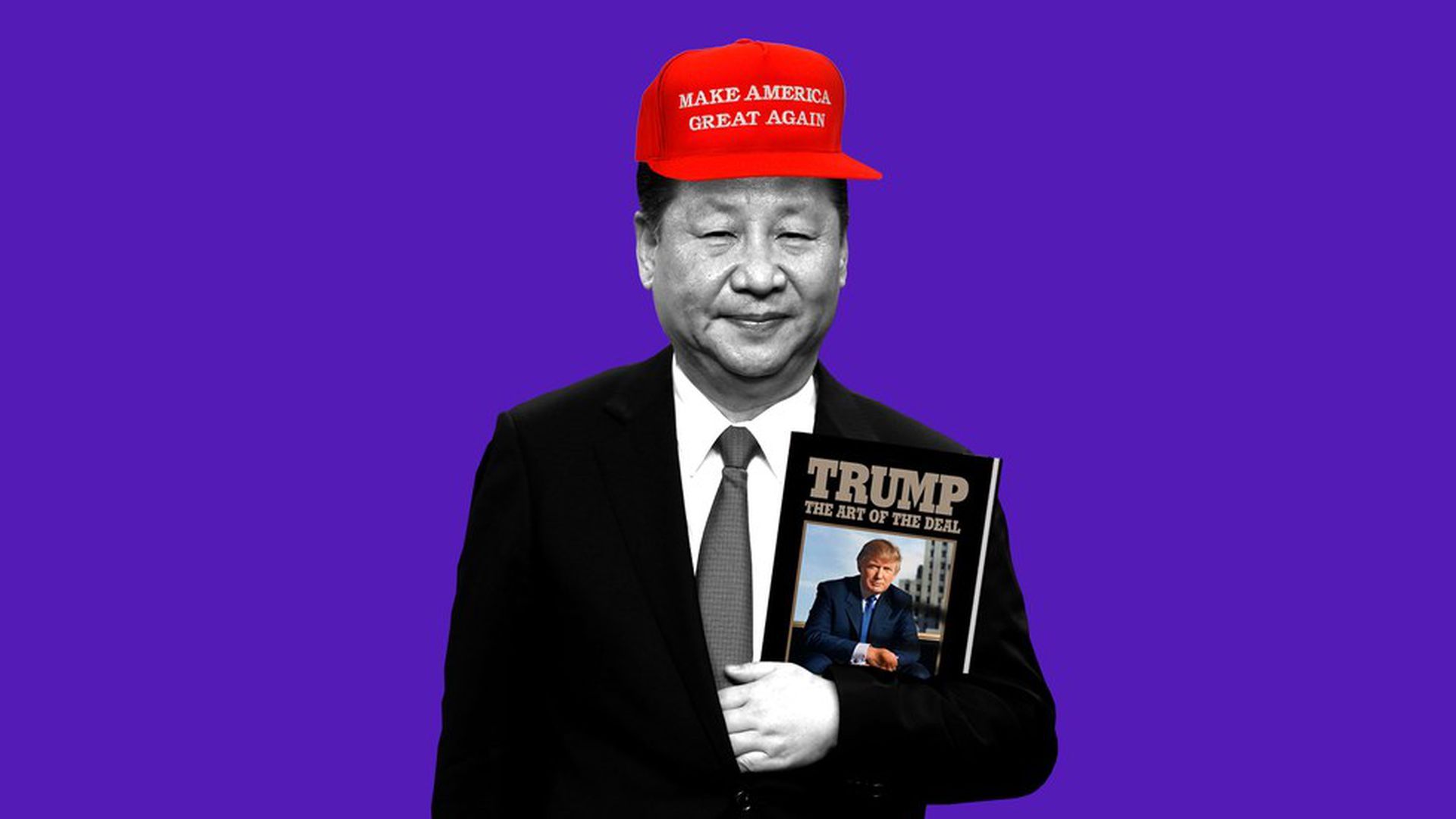How to toady to Xi Jinping
Add Axios as your preferred source to
see more of our stories on Google.

The new way of politics and business. Illustration: Greg Ruben/Axios
American and Chinese corporate titans share something in common: jittery slavishness to their president, and sometimes even each other's president. In the U.S., presidential tweets, and even the threat of one, send powerful CEOs scrambling to announce hiring sprees, factory openings, and profit repatriation.
- In China, the driver for seeing things President Xi Jinping's way — quite apart from survival and staying out of prison — is Belt and Road, his planet-spanning infrastructure initiative.
What's going on: Beth Bao, a strategic planning executive with JD Logistics, says the company is deliberately aligning company strategy with Belt and Road. Others are doing the same. Among the examples:
- JD is shipping cargo on dedicated rail cars twice a week from Hamburg to the Chinese provinces of Xi'an and Chengdu, along the Belt and Road route, Bao said this week.
- Last year, Jack Ma, founder of JD's e-commerce rival Alibaba, called Belt and Road "a responsibility and an opportunity."
- Western companies, too, frequently cite investments along Belt and Road in what appear to be conspicuous toadying to Xi.
According to an account last year in the New Yorker, Xi himself leveraged Trump's soft spot for jobs and obsequiousness for a foreign policy purpose: A month after the 2016 election, Trump had taken a call from Tsai Ing-wen, the president of Taiwan, which China regards as a province, not a country. Xi wanted to be sure that there were no such repeats.
- So, according to this account, Xi dispatched Alibaba's Ma to have a chat with Trump.
- Meeting the U.S. president-elect at Trump Tower, Ma said that Alibaba would create 1 million jobs in the U.S.
- The piece quotes a Chinese university professor, "China knows Trump can be unpredictable, so we have weapons to make him predictable, to contain him. He would trade Taiwan for jobs."
